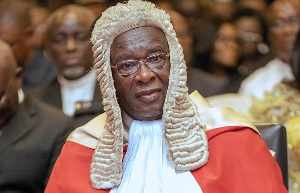The World Bank Group’s Global Investment Competitiveness Survey (GIC Survey) offers practical evidence to help policy makers design policies and prioritize reforms that foreign direct investors value. Through interviews with 754 executives of multinational corporations (MNCs) that have investments in developing countries, the survey measures the role in influencing FDI decisions of such investment climate variables as investment incentives, promotion, FDI regulations, and administrative processes.
By identifying variables that are most valued by investors, this provides practical
guidance to where policy makers in host countries can focus their efforts to attract and retain
FDI, and maximize its gains for development.
While host-country policy makers listen to investor preferences, they must also consider the public interest.
Although the survey focuses on MNC perspectives and preferences, this report does not necessarily recommend that governments simply yield to investors’ wishes.
Addressing investor concerns should be balanced with the public interest. For instance, low tax rates and incentives may be desirable from the perspective of MNCs, but governments should not simply lower tax rates and give more investment incentives, especially if these limit the country’s gains from FDI.
Foreign Investors Are Heterogeneous with Multiple Motivations
Investors with different motivations consider different factors in their decision to invest. MNCs that primarily seek access to natural resources—as in extractive industries—care more about such variables as access to land and resources they wish to exploit than other variables. Market-seeking FDI tends to prioritize the size of and purchasing power in the domestic market.
Efficiency-seeking FDI values policies that facilitate the import and export of goods and services, and lower production costs. Efficiency-seeking FDI also includes firms that participate in global value chains (GVCs), an important way for developing countries to integrate into the global economy.
MNCs that seek strategic assets primarily pursue technologies and brands that
can enhance their operations.
In this survey, close to 90 percent of investors said that accessing new markets or new customers was one of their motivations. About half of respondents are motivated by lowering production costs or establishing a new base for exports. The motivation to coordinate a value chain occurs for two-fifths of respondents. For those investors that want to coordinate their companies’ value chain, 70 percent are also motivated to cut production costs. Few respondents identify with the motivation to acquire strategic assets (15 percent) or access natural resources and raw materials (12 percent). Critically, almost two-thirds of investors selected multiple motivations and when asked about which motivation prevails, most investors (71 percent) say they are market-seeking.
Survey respondents represent a range of sectors with a combination of investor motivations
Investors involved in efficiency-seeking FDI, relative to investors involved in other types of FDI, are more sensitive to various host market characteristics, including investment climate factors. These host market characteristics include macroeconomic stability and favorable exchange rate, labor pool, physical infrastructure, tax rates, access to land, and domestic financing sources.
Among investment climate variables, MNCs involved in efficiency-seeking FDI assign a higher importance to investment protection guarantees, ease of entry, local suppliers, incentives, trade agreements, and bilateral investment treaties, compared with other investors. This suggests that firms involved in efficiency- seeking FDI may be more responsive to policies and reforms aimed at improving the business environment.
Policy implications emanating from the results of this survey are based on investors’ responses mostly for middle income developing countries, such as Ghana.
Investment Exploration and Location Decision: First Phase in the Investment Life Cycle
What Variables Determine MNC Investment Decisions?
Investors consider a broad range of factors in deciding to invest, the most important being political stability and security, as well as a business-friendly legal and regulatory environment. These top other variables such as infrastructure, labor talent and skill, and low costs of labor and inputs. Among survey respondents, 86 percent find the legal and regulatory environment important or critically important, suggesting that it weighs heavily in investors’ decision to invest. Firms involved in efficiency-seeking FDI are more sensitive to a broad range of factors. MNCs seeking cost-competitive locations for their mostly export-oriented production value macroeconomic stability, labor skills, reliable infrastructure, low tax rates, low costs of labor and input, access to land, and domestic financing more than other investors. Because these investors are more sensitive to costs, they more carefully consider factors that directly affect their cost structure and productivity.
The size of the domestic market is valued slightly more by investors without an efficiency-seeking motivation, which are predominantly motivated by accessing new markets. The two most important factors—political stability and security, and the legal and regulatory environment—are consistently valued highly across all types of investors.
Investors seek both strong legal protections and predictability and efficiency in implementing
laws and regulations. Many developing countries have inefficient bureaucracies, opaque regulations, complex procedures, and high transaction costs that undermine their competitiveness. Not surprisingly, four out of five surveyed investors rate transparency and predictability in the conduct of public agencies, investment protection guarantees provided in the country’s laws, and the ease of starting a business as important in their decision on where to invest. Moreover, about a third of investors rate these as critically important, or potential deal-breakers.
Investors value policies that help them expand their business more than policies to attract them. Forty-five percent of respondents rate investment protection guarantees as
critically important or deal-breakers, highest among all investment climate factors. Over 90
percent of investors rate various types of legal protections as critical, including the ability to
transfer currency in and out of the country as well as legal protections against expropriation,
against breach of contract, and against nontransparent or arbitrary government conduct.
All investors—regardless of sector, source country, or FDI motivation—find these guarantees of greatest value. These policies are bigger deal-breakers than investment incentives, preferential trade agreements, and bilateral investment treaties.
These results suggest that host countries need to pay as much attention to investor aftercare as they do to attracting investors to their country MNCs involved in efficiency-seeking FDI place more importance on investment climate factors compared to firms involved in other types of FDI. Except for transparency and predictability in the conduct of public agencies, which firms find most important regardless of motivation, firms involved in efficiency seeking FDI value most investment policies more highly.
This suggests that MNCs involved in efficiency-seeking FDI may be more sensitive to these factors when deciding to invest.
How Critical Are Incentives in Attracting FDI?
Investment incentives to attract FDI are widespread and used by governments in both high-income and developing countries. Developing country policy makers often view incentives as necessary for their countries to compete for FDI. Incentives impose sizable costs on host countries through fiscal losses from non-collection of taxes, rent-seeking by firms, and associated tax evasion. Countries must thus walk a fine line between remaining competitive by offering incentives and ensuring that benefits outweigh their costs.
Investment incentives rank only fourth in importance to investors out of six investment climate characteristics listed in the GIC survey.
They rank lower than transparent government conduct, investment protection guarantees,
and ease of establishing a business. Overall only one in five investors finds the absence of investment incentives as dealbreakers in deciding to invest. Another third of respondents find incentives to be important but not deal-breakers.
This does not necessarily suggest that incentives can be completely eliminated but that, by themselves, they are unlikely to convince investors to shift the location of their investment. The policy fundamentals of the investment climate must be addressed before policy makers resort to incentives as a means of attracting investors.
Duty-free imports, tax holidays, and VAT exemptions are the top three most important
incentives for investors. About two-thirds of investors who said that incentives are at least somewhat important find these three instruments to be important or critically important.
Obtaining fiscal and financial incentives typically takes three months but varies from about a week to over a year, depending on the country and type of incentive.
Investment Entry and Establishment: Second Phase in the Investment Life Cycle
How Do Policies and Administrative Procedures for Business Establishment Affect FDI Decisions?
Investors strongly value business-friendly policies and efficient procedures related to business establishment. About four out of five respondents say that the ease of obtaining approvals for their investment is important or critically important, while only 2 percent say it is not at all important. In fact, the speed of obtaining approvals and permits ranks even higher than investors’ ability to own all equity in a project, to easily bring in expatriate staff, and to import production inputs. For firms involved in efficiency-seeking FDI, the ability to import production inputs is rated slightly more important (73 percent) than the ability to bring in expatriate staff (71 percent) while the reverse is true for firms involved in other types of FDI (61 and 65 percent respectively).
Although efficiency in obtaining permits is most important overall, restrictions on foreign equity ownership appear to be the biggest deal-breaker. Forty percent of respondents claim that owning all equity in their affiliate and not being required to share ownership with local firms or the government is critically important, highest among all policy factors considered. This result is significant in the context of foreign ownership restrictions still being relatively prevalent across developing countries, especially in services.
Investors who value efficiency tend to favor destinations where approvals are quicker to obtain. The median length of time for obtaining a land lease is two months, and for obtaining work permits is about 1.5 months.
Investment Operations and Growth: Third Phase in the Investment Life Cycle
What Role Do Local Suppliers Play in MNCs’ Operations?
FDI brings potential benefits to the host country through a variety of channels including linkages with the local private sector. When foreign investors source inputs locally instead of importing them, they boost production of local firms and create jobs in the local economy. As such, policy makers try to promote linkages through various policies and programs. One such policy is local content requirements, where a certain percentage or absolute amount of local input is required of foreign firms. Research finds, however, that local content requirements and similar measures have a largely negative effect and discourage FDI.
While investors resist being mandated to source their inputs locally, many of them prefer to do so if they are able to find in the local market the quality and quantity of the production inputs they need. On average, 43 percent of material inputs, supplies, and services are sourced locally, versus 34 percent of inputs sourced from another unit of the company and 23 percent of inputs imported. The percentage of inputs sourced locally varies widely: about 13 percent of surveyed companies do not source any inputs locally, another 13 percent source all their inputs locally,
and the rest of the firms (about 74 percent) source some portion of their inputs locally.
Linkages are more prevalent for MNCs in service sectors compared with manufacturing firms.
Overall, 61 percent of MNCs consider linkages as important or critically important in their location decisions. Among those investors who identified linkages as at least somewhat important, 74 percent find that capacity and skills of local suppliers are important or critically important. This suggests that government initiatives to promote linkages will only be effective if local companies can offer the capacity and skills expected by MNCs. At the same time, governments of host countries have the scope to facilitate linkages. Investors value information on the availability of local suppliers, rated as important or critically important by 68 percent of respondents. About 61 percent of respondents also rate supplier upgrading as important, whether in the form of direct financial incentives for companies to invest in supplier development or governments’ own initiatives to upgrade suppliers.
Only 42 percent of respondents value matchmaking events with suppliers.
When capacity and quality constraints in the local market prevent investors from finding appropriate suppliers, investors value being able to import inputs instead of being required to source them locally. Many manufacturing MNCs invest in developing countries to reduce their cost of production.
At the same time, to maintain a high quality of final products, which are often intended for export, foreign manufacturers appreciate the flexibility of importing their own inputs for
production rather than sourcing them locally. Of the surveyed manufacturing firms, 68 percent
rate the ability to import inputs as important or critically important, as opposed to only 56 percent of services companies.
Foreign investors themselves also have an interest in promoting linkages, but company initiated
programs are uncommon. Sourcing inputs, supplies, and services locally instead of importing them can reduce costs for foreign-owned firms. Some MNCs have their own programs to promote linkages, but these are not widespread. The survey finds that, among the foreign firms that do source locally, half use internal “talent scouts” to find local suppliers.
Over 30 percent have vocational or training programs to upgrade local suppliers, and 11
percent have equipment-financing programs for local suppliers. Among firms that have vocational or training programs, about a third sponsor certification programs and partner with local technical colleges and universities.
Business News of Sunday, 15 March 2020
Source: goldstreetbusiness.com













